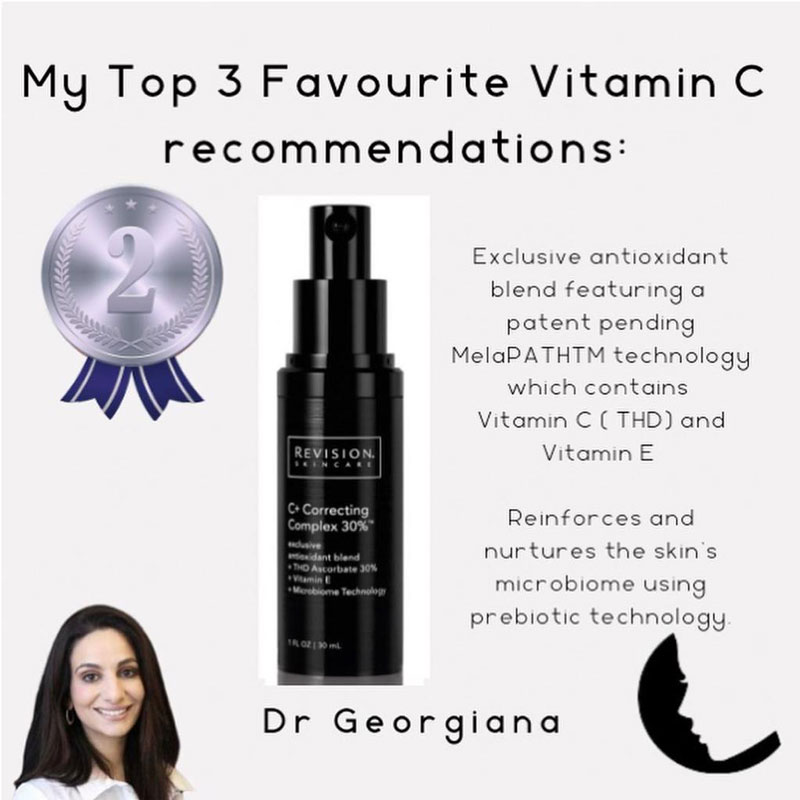Vitamin C is the most abundant antioxidant found naturally in the skin but depletes as we get older due to sun damage and age.
It is one of the most popular active ingredients in skincare and deserves a place in pretty much every skincare routine.
But there is a lot of misinformation out there surrounding the ingredient, as well as things to know that can help make it more effective – and therefore your skin healthier.
Why does your skin need vitamin C?
Vitamin C has many benefits, it brightens skin, helps fade dark spots, evens out skin tone, helps reduces redness, protects against sun damage and firms the skin.
Applying it to the skin can help replenish existing levels, to defend skin from further damage and repair past damage too, keeping skin strong, healthy and glowing for longer.

Are there different forms of vitamin C to look out for?
Yes – it can be confusing and there are two main forms I would choose:
L-asorbic acid is pure vitamin C and it is the most stable and effective form that you’ll find in skincare, but its acidic formulation can make it intolerable to sensitive skin.
TetraHexyl DecylAscorbate is a highly stable form of vitamin C and boasts amazing skin penetration, but it doesn’t come cheap I’m afraid.
These are my top 3 most effective vitamin C products that I might recommend as part of your personalised skincare plan:



What percentage of vitamin C should you use?
In order for a vitamin C serum to be effective, it must have a concentration between 10 and 20 percent and it also depends on your skin concerns.
A small percentage of people may experience temporary irritation when first starting a product with high concentrations of ascorbic acid (especially. when formulated at a low pH, which is ideal for its effectiveness) but that should resolve over time as skin acclimates to it.
So how does vitamin C fit into your skincare routine?
Well, firstly you can use it every day after cleansing, depending on how well your skin tolerates it. Then allow it to absorb before applying a moisture lotion/SPF.
After a couple of weeks then I would advise using it twice a day, morning and night so you can repair the skin while you sleep. You can add a dose to your go-to night moisturiser or layer a Vitamin C serum beneath it for a boost.
What should you not mix with vitamin C?
AHAs and BHAs, such as glycolic, salicylic, and lactic acids should never be used with Vitamin C. Vitamin C is an acid, too, and is unstable, so the pH balance will be thrown off by layering these ingredients together and might as well be useless.
So if you aren’t sure which vitamin c is correct for you, I can help. By booking in an online consultation with me, I will review your skin concerns and create your Personalised Skincare Plan containing medical grade skincare products.
I look forward to meeting you online!
Dr. Georgiana


